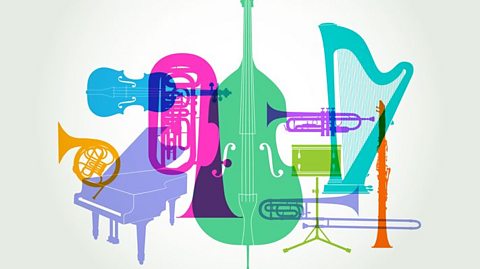Danny Lane is a professional musician from Huddersfield and is profoundly deaf.
He grew up studying music and now composes, performs and teaches all over the world, as well as directing artistic projects with young people in the deaf community. Here’s his music journey in his own words.
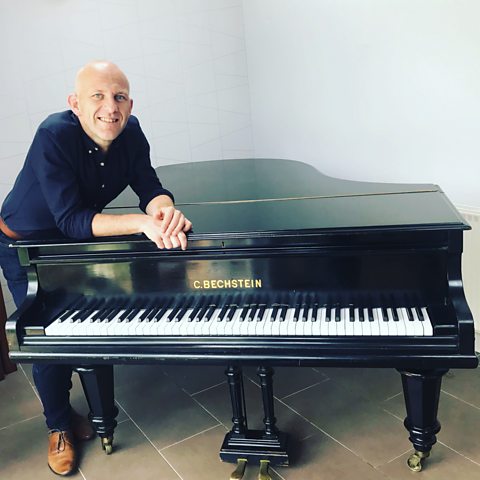
An electronic world of sound
I was born profoundly deaf and was introduced to music at the age of 8. My primary school teacher encouraged everyone, including me, to play a musical instrument. When I had my first cornet lesson, I was hooked! My parents were supportive and never saw my deafness as a barrier.
There are approximately 11 million people in the UK living with some degree of deafness – which is one in six of the population. Being deaf doesn’t mean that you can’t hear anything at all. There are four different levels of deafness:
- mild - where a sound needs to be above 26-40 decibels (dB) to be heard
- moderate - 41-55 dB
- severe - 71-90 dB
- and profound - 91+ dB or where a person can detect no sound.
I can never imagine playing music without my hearing aids. They will never replace normal hearing but they do make an extraordinary difference. I started wearing hearing aids when I was just a few months old and through this electronic sound world, this is primarily how I understand music. Without my hearing aids, I hear nothing, and when there’s uninterrupted silence I can imagine music playing in my head.

'I read music scores as if they were subtitles'
When I was 11, I began to learn to play the piano. This helped me to develop a deeper understanding of harmony, as I could use my fingers to play different chords shapes and discover how one chord could progress to another. I obtained my grade five piano and theory certificates by the end of secondary school and, while armed with a GCSE music qualification, it didn’t quite prove my potential to teachers when I was looking to go to college. They asked me, “How are you going to access listening tests?” and “How do you hear music?”
I left home at the age of 16 to study A-Level music at Mary Hare School for the deaf in Newbury. It was the first time that I had met other deaf people with an interest in music. I went to Keele University and obtained a degree in Music and French. This was challenging, as there was a lot of listening involved. I spent much of my private time listening to music using my hearing aids and with headphones on top whilst reading music scores as if they were subtitles!
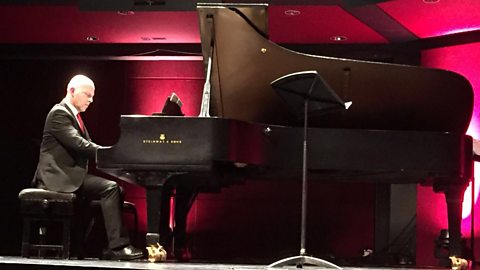
The challenge of performing
Sometimes performing music can be more challenging when numerous instruments are playing at the same time. I make eye contact with other musicians to make sure that we are playing in time. Sometimes I look at what their hands are playing on their instruments and if some instruments sound too quiet, I ask the musicians to sit closer to me.
I have been lucky to perform around the world, in venues such as Hamer Hall in Melbourne, Australia, The Palace of Arts in Budapest, Hungary and Kings Place in London. Most often I perform in schools around the UK to provide inspiration to deaf young people and give them the opportunity to perform themselves.

'Deafness should never be seen as a barrier to accessing music'
I love composing and experimenting with sounds. I work for a national charity called Music and the Deaf, which is dedicated to providing music opportunities for people with any degree of deafness. I have a very creative job of writing music arrangements for various music groups and have done in the past for the Deaf Youth Orchestra.
I run workshops all over the UK, and I always invite participants to make music themselves using instruments and music technology. People seem to love it and connect with music even more. Over the past two years, I have been composing my own collection of piano pieces inspired by classical and modern-day composers including Debussy, Ravel, Einaudi and Joep Beving. I hope to record and perform my own compositions one day.
There is often the perception that music and deafness don’t go together. But there are musicians around the world who are succeeding as performers, composers and music producers and they happen to be deaf too. Deafness should never be seen as a barrier to accessing and enjoying music. If you think you’ve got what it takes to become a musician, or want to explore music and have fun, then why not? Go for it!
Sheku Kanneh-Mason on life as a young classical musician
To mark the BBC Proms season, we spoke to Sheku Kanneh-Mason about what it's like to play classical music for a living.
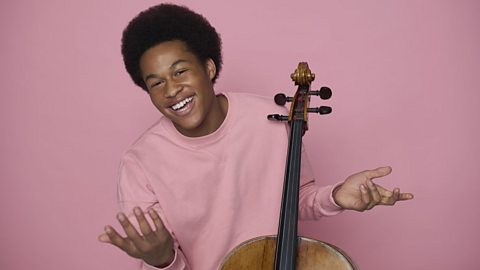
Five potential health benefits of music
From weight loss to preventing snoring, music has a special way of keeping us healthy. Find out how here.
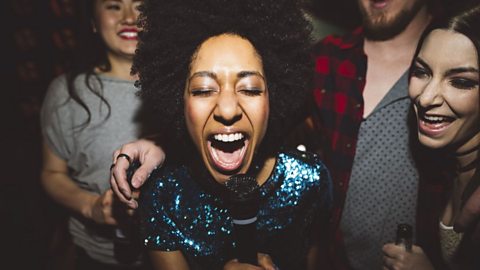
Myth or Maestro: the true or false classical music quiz
Test your knowledge of classical music myths with this true or false quiz.
